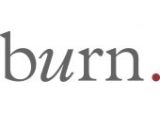“The power of the best ideas comes from the intuitive,
the connections that come out of nowhere (or seem to) from
sensual and emotional places…not from logical story lines.”
Right off the bat, we’re uncertain. A folio, held together with string and beads? Twenty-first Century digital imagery, presented in a Fifteenth Century publishing format; this is going to be good.
We understand the familiar spine-creak and fragrant, glossy pages of other photo books that line our shelves. Images set off against white matting, each afforded a respectful moment, each making its unique statement.
This is the opposite of what (based on a true story) aspires to.
The prevailing ethos of photojournalism – as we have known it for the past 50 years – has been that the photographer should somehow be invisible, recording life with an objective, almost clinical dispassion. David Alan Harvey doesn’t do dispassion. He wants to get closer, forge a bond so tight that subject learns as much from photographer as photographer learns from subject.
(based on a true story) is a collection of spectacular, mysterious moments. The story moves with fluidity and ease, all day and all night, through a city that is never named on a continent never specified. Is it journalism? Is it “staged”? As the poet said: partly truth partly fiction, a walking contradiction.
The images explode with color, heat, humidity, sex, more sex, danger, fear, chaos, more chaos. There are sublime women that look like Greek statues, were the Greeks to ever have imagined those hips and that café au lait skin. There are monsters – masked paramilitaries with automatic weapons, a skeletal transvestite, her face a death mask grimace, drinking beer through a straw and smoking her cigarette down to the filter.
Harvey hits all the high points – even clichés – of Rio de Janeiro, but his treatment is subversive. Beaches, mountains, high society, favelas, jungles, voodoo; they’re all here, but thrown together in a high-energy, digital montage that evokes the emerging aesthetic of Chaos Cinema.
The images tumble and boil in your mind, the way an intense foreign trip or a sexual adventure revisits through the blur of half-sleep. This is in no small measure the work of Bryan Harvey, David’s son, collaborator and architect of the design.
It’s critically important to know that Bryan is a filmmaker. Because while (based) might seem frenetic and challenging as a book, it flows naturally as a film – rising and falling, heating up, cooling down, speeding forward, slowing down, deafening one moment, a whisper the next. And because the images are slammed together without explanation or gentle transition, they jump out of the page – dynamic cinematic, wholly unpredictable.
Presented a diptych (a form that dates back at least as far as the Babylonians), our logical mind asks, how do I take this in, where should I go? Should I process the images as a set or de-construct the stack, following each half-image around to the back of the collection? There are no page numbers, only a handy map. Can I mix up the images and create my own version?
The answer is yes – to all of the above and pretty much anything else. The best way to read (based on a true story) – as with any genuine adventure – is to surrender. The Harvey Boys are taking you where they will. Give in and go along for the ride.
John Mathias Mitchem
Venice, California
For the “making of”, visit: www.theriobook.com
by David Alan Harvey
1 to 100: $95 (sold out)
101 to 300: $120 (sold out)
301 to 400: $144 (sold out)
501 to 600: $192 (sold out)
(incl. VAT, excl. shipping)
![]()
First edition of 600 copies
Layout and Design: Bryan Harvey
Producer: Eva-Maria Kunz
Coordinator: Diego Orlando
Production: Andrea Barbato, Michael Courvoisier, Candy Pilar Godoy
Offset Printing by EBS, Verona, Italy
7,6 ” x 10,03 “
1 poster 14,17 ” x 18,50 “
1 roadmap for original re-assembling
1 postcard with clues
Slipcase: double run color print on canvas ‘IRIS’
Cover: hardcover, color print on canvas ‘IRIS’
Contact sheet on inside cover, flap
Shipping box: cardboard, duo color printed
Paper: Fedrigoni Splendorgel Extra White 160 gr
For info about collector boxes please contact directly at alejandra@burnmagazine.org





Pingback: Based on a true story – AR Photo